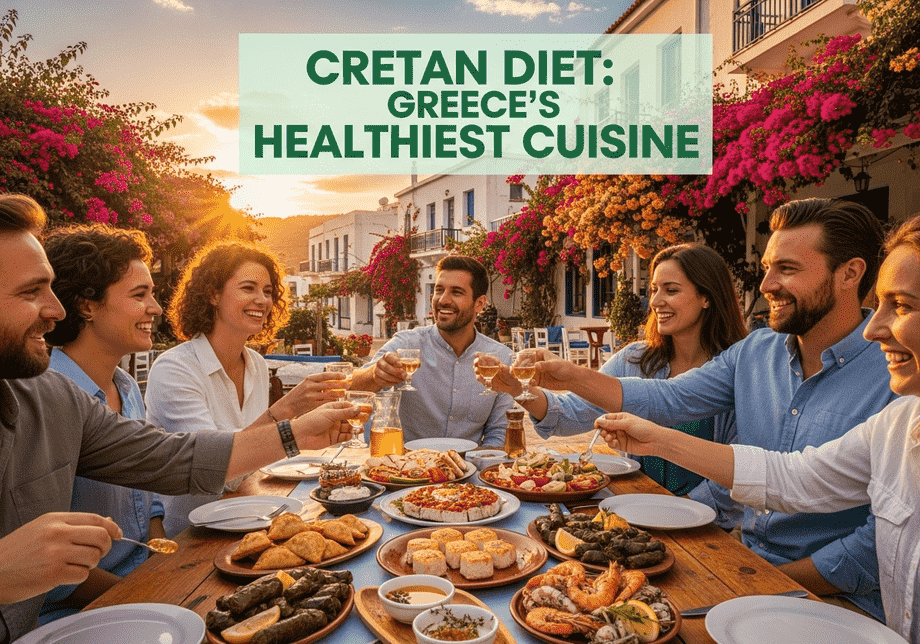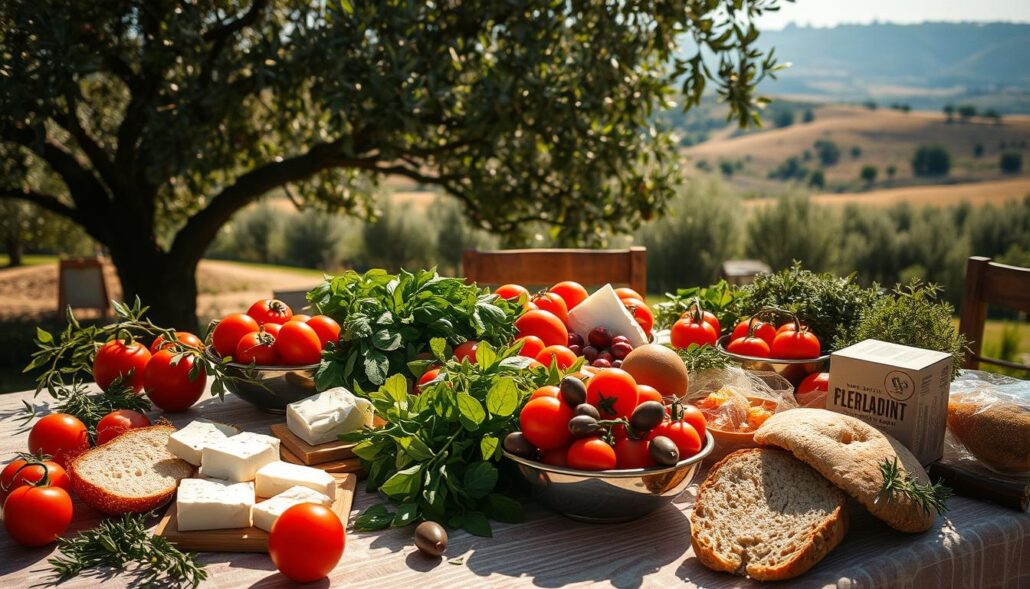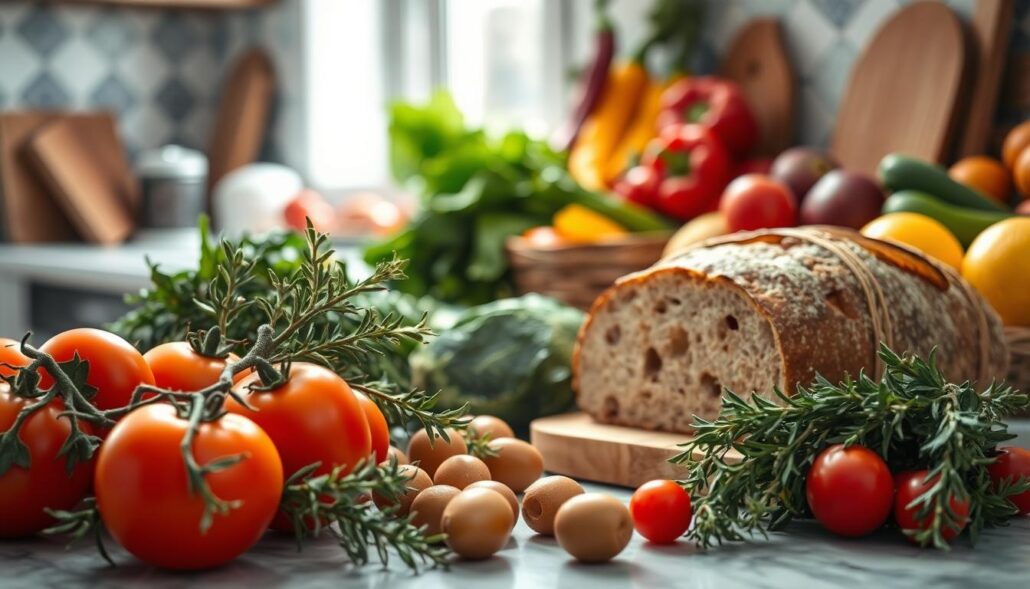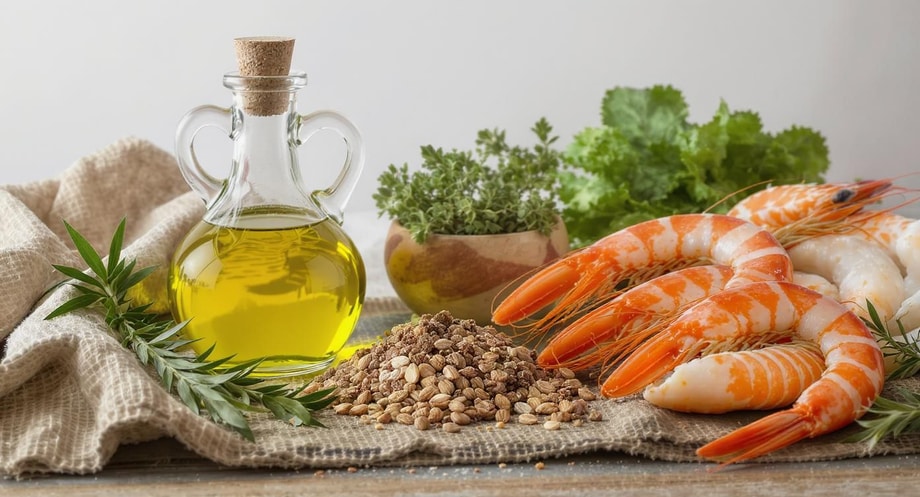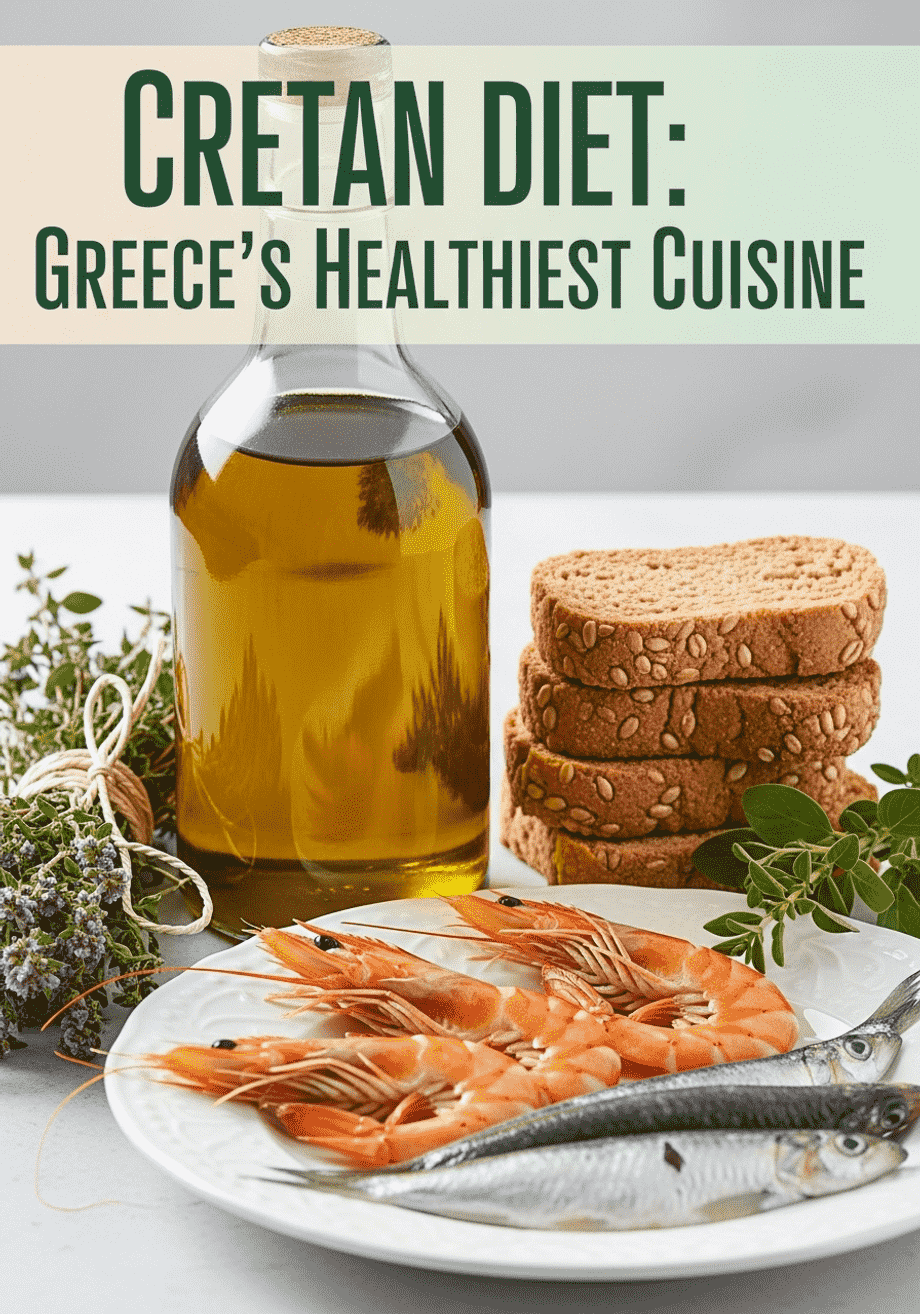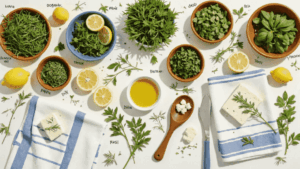Cretan Diet: Greece’s Healthiest Cuisine – Food tours and cooking workshops
Did you know residents of Crete live 10 years longer on average than people in the UK? This astonishing longevity stems from an ancient eating pattern now celebrated as the gold standard for wellbeing.
For decades, scientists have marvelled at how Greek islanders maintain lower rates of heart disease and diabetes. Their secret lies in a harmonious blend of sun ripened produce, freshly caught seafood, and time-honoured preparation methods. These form the backbone of the Mediterranean diet ranked the world’s healthiest eating style for six consecutive years.
What makes this approach so special? Imagine plates overflowing with olive oil-drenched vegetables, wholegrain rusks, and slow cooked beans. Meals here aren’t just fuel, they’re celebrations of seasonal abundance. Even snacks like fried snails showcase ingenious use of local ingredients.
Through food tours and hands on workshops, you’ll discover how generations have turned simple dishes into life-extending masterpieces. From crushing herbs with volcanic stones to baking bread in wood fired ovens, every technique tells a story of sustainability.
Ready to explore flavours that could add years to your life? Let’s unravel why this culinary tradition remains one of Europe’s best kept health secrets.
Introduction to the Cretan Diet and Greek Eating Traditions
What if your meals could add years to your life? Studies reveal that traditional Greek eating patterns contribute to some of the world’s highest longevity rates. In fact, research shows those following a Greek diet experience 33% lower heart disease risk compared to typical Western diets.
Why Cretan Cuisine is a Healthy Choice
The secret lies in balance. Traditional Greek foods prioritise seasonal vegetables, whole grains, and olive oil over processed ingredients. Nutritionists praise this approach:
“The Mediterranean diet isn’t restrictive, it’s about enjoying diverse, nutrient rich meals.”
Science backs these claims. The Greek diet has topped global health rankings for its ability to:
- Cut stroke risk by 30%
- Improve cognitive function in older adults
- Reduce depression symptoms
The Mediterranean Influence on Greek Lifestyle
Meals here are social events, often lasting hours. This relaxed pace aids digestion and mindfulness. You’ll notice people favouring fresh catches over red meat, and herbs like oregano instead of salt.
Seasonality shapes everything. Summer brings stuffed tomatoes and watermelon salads, while winter means hearty bean stews. This rhythm keeps meals varied and packed with changing nutrients – a cornerstone of the traditional Greek approach to eating well.
The Mediterranean Diet’s Roots in Greek Culture
How have time tested food traditions survived millennia while staying relevant today? The answer lies in a culinary philosophy that prioritises nourishment over novelty. For over 4,000 years, Greek communities have built meals around what grows locally and thrives seasonally, a practice modern nutritionists now champion.
Historical Traditions and Modern Adaptations
Ancient Greek texts mention the same staples you’ll find in today’s kitchens: olive oil for heart health, wholegrains for fibre, and legumes for plant-based protein. These ingredients form the backbone of dishes like fassolada (bean soup) and horta (wild greens), now recognised as nutritional powerhouses.
Traditional cooking methods boost benefits naturally. Slow-cooking breaks down legumes’ nutrients, while raw olive oil drizzles preserve its antioxidants. Seasonal eating ensures variety, spring brings artichokes, autumn yields grapes, and winter citrus brightens cold months.
Modern Greek chefs honour these principles while adapting to contemporary needs. You’ll find ancient grains in artisan breads and seafood replacing red meat in family recipes. This evolution maintains the diet’s core strengths while aligning with current dietary research.
Mealtimes remain social rituals where stories flow as freely as wine. Sharing small plates encourages moderation, while leisurely pacing aids digestion. It’s this blend of timeless wisdom and modern sensibility that keeps the Greek diet thriving across generations.
Greece’s Healthiest Cuisine: Key Ingredients and Their Benefits
What makes certain pantry staples the foundation of longevity? The answer lies in three nutritional powerhouses that feature in nearly every Cretan kitchen. These elements work together to create dishes that nourish both body and soul.
Nutritional Highlights of Olive Oil, Herbs and Vegetables
Extra virgin olive oil isn’t just a cooking fat, it’s liquid gold. Research shows its polyphenols fight inflammation better than ibuprofen in some cases. A 2015 review confirmed it helps regulate blood sugar, making it a warrior against diabetes and obesity.
Pair this oil with fresh vegetables, and magic happens. The fats help your body absorb vitamins A, D and E from greens like spinach and wild horta. This synergy explains why Greek salads deliver more nutrition than their ingredients suggest.
Don’t overlook the herbs! Oregano, thyme and rosemary aren’t just flavour boosters. Studies reveal their essential oils:
- Reduce harmful bacteria in food
- Improve blood circulation
- Support immune function
“Regularly consuming fresh herbs can provide more antioxidants than many fruits,” notes nutrition researcher Dr Elena Petridou.
Quality matters. Traditional stone-milled olive oil retains 30% more antioxidants than industrial varieties. Look for cold pressed bottles with harvest dates, your heart and brain will thank you later.
Want to reap these benefits? Drizzle oil over roasted veg, steep herbs in dressings, or simply dip crusty bread in peppery olive oil. Your taste buds and wellbeing will both celebrate.
Vibrant Vegetables, Olives and Fresh Herbs in Greek Cooking
Ever wondered how Greek dishes burst with such vivid flavours and colours? The answer lies in nature’s bounty sun kissed produce harvested at peak ripeness. From emerald spinach to ruby-red tomatoes, each ingredient plays a vital role in creating meals that nourish and delight.
Seasonal Produce and Local Sourcing
Greek kitchens celebrate what’s growing now. Spring brings artichokes and wild greens, while autumn showcases plump aubergines and squash. This rhythm ensures meals pack maximum nutrients studies show seasonal vegetables contain up to 40% more vitamins than out of season imports.
Traditional preparation unlocks hidden benefits. Slow-roasting tomatoes concentrates lycopene, whilst raw cucumbers retain enzymes. As chef Yiannis Tsivakos explains:
“We treat vegetables like treasures, gentle cooking preserves their goodness.”
Locally grown herbs transform simple dishes. Oregano from mountain slopes and thyme from coastal hills infuse meals with distinct regional character. Pair these with olives cured in sea salt, and you’ve got flavours that sing of the Mediterranean.
Want to capture this magic at home? Seek produce grown nearby, store leafy greens in damp cloths, and always drizzle with cold pressed olive oil. Your taste buds, and body will notice the difference fresh ingredients make.
Delicious Dips and Appetisers in Greek Food
Have you ever tasted a spread so good it improves your health? Greek dining culture turns simple starters into nutritional goldmines through clever combinations of fresh ingredients. These vibrant dips and shared plates form the heart of meze a social dining tradition that feeds both body and soul.
Hummus, Tzatziki and Melitzanosalata Uncovered
Let’s start with the classics. Creamy hummus blends chickpeas with tahini, olive oil, and zesty lemon juice, a protein packed trio shown to stabilise blood sugar. Studies reveal regular hummus eaters have 20% lower heart disease risks. Then there’s tzatziki, where thick Greek yogurt meets cucumber refreshment. At just 35 calories per serving, it’s your guilt free ticket to creamy satisfaction.
Don’t overlook melitzanosalata. This smoky aubergine dip combines roasted flesh with garlic punch and lemon juice tang. Nutritionists love its fibre content, one portion delivers 15% of your daily needs. As chef Maria Kalogeropoulou notes:
“Our dips turn vegetables into crave worthy treats, that’s the magic of Greek cooking.”
Stuffed Grape Leaves and Other Meze Delights
Now meet the star of sharing platters stuffed grape leaves (dolmades). These delicate parcels wrap herb-infused rice in briny leaves, creating bite-sized nutrient bombs. Their antioxidant levels rival blueberries, thanks to the olive oil marinade and fresh dill.
The meze tradition teaches valuable lessons. Sharing small plates slows your eating pace, while varied flavours prevent overindulgence. Want to recreate this magic? Keep portions modest, use seasonal greens, and always include a dish of mixed dips for dipping pleasure. Your next gathering could become a longevity boosting feast!
Nutritious Soups and Salads from the Mediterranean Table
Could your lunch double as a longevity elixir? Greek kitchens answer with steaming bowls and vibrant plates that nourish body and soul. These dishes prove comfort food needn’t compromise on nutrition.
Avgolemono Soup and Traditional Lentil Soupa
Avgolemono’s velvety texture hides a protein powerhouse. One bowl blends free range chicken, farm fresh eggs and zesty lemon delivering 27g muscle building nutrients for just 245 calories. Nutritionist Dr Eleni Marouli explains:
“The citrus here does double duty boosting iron absorption while fighting winter colds.”
For plant-based fuel, try fakes soupa. Each cup of this lentil soup packs 18g protein and 16g fibre. Slow-cooking releases minerals like iron and magnesium, making it a staple for Cretan shepherds.
Horiatiki Salad: The Villager’s Fresh Plate
No Greek meal feels complete without horiatiki. Juicy tomatoes and crisp cucumbers meet briny olives and creamy feta in this iconic salad. Dressed simply with olive oil, it’s a masterclass in balancing flavours and nutrients.
What makes it special? Sun ripened tomatoes offer lycopene for heart health, while feta provides calcium without overwhelming saltiness. Add a squeeze of lemon, and you’ve got a vitamin C boost that brightens every bite.
Want to recreate these dishes? Simmer soups slowly to develop depth, and always chop salad ingredients just before serving. Your taste buds, and waistline will thank you.
Protein-Packed Meals: From Souvlaki to Seafood
How do traditional meals maintain muscle health while tasting incredible? The answer lies in smart pairings of lean proteins and flavour boosting marinades. Cretan kitchens transform simple ingredients into satisfying dishes that fuel active lifestyles without heavy processing.
More Than Just Street Food
Souvlaki showcases this balance perfectly. Skewers of marinated chicken or pork get their zing from lemon juice and olive oil, a combo that tenderises meat naturally. Nutritionists praise this approach:
“Grilling over charcoal reduces fat content while preserving protein quality,” explains dietitian Sophia Kourkoulakou.
Seafood plays an equally vital role. Locals enjoy protein-packed options like grilled sardines and octopus stew. These dishes deliver omega3 fatty acids shown to support heart health and cognitive function. A 2022 study found Cretans consume three times more seafood than the UK average.
Want to boost your protein intake? Try marinating grilled meats in herb-infused oils, or pair baked fish with antioxidant rich salads. These combinations offer sustained energy while honouring centuries old culinary wisdom.

